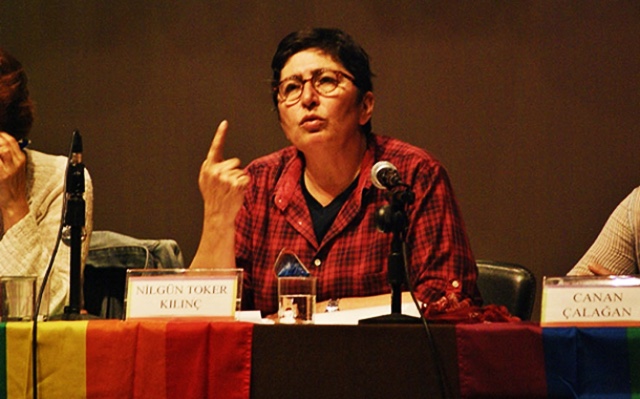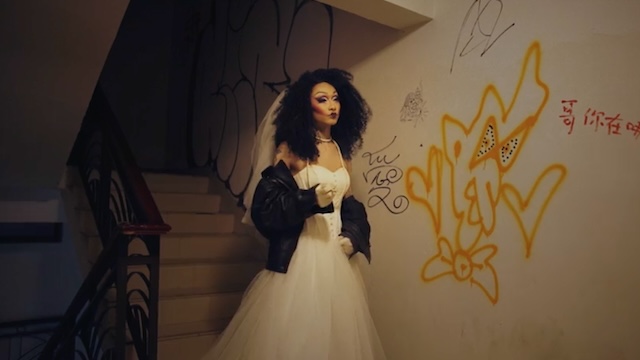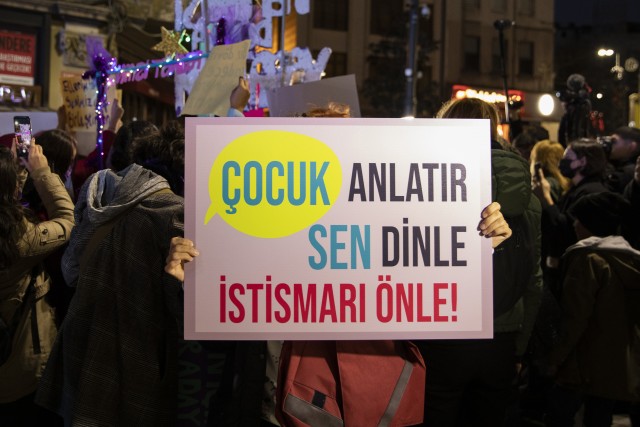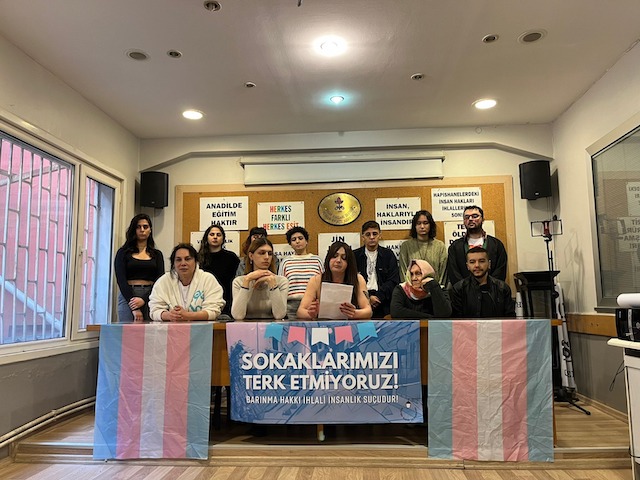Through articles by and interviews with feminists who are experts in their respective fields, 5Harfliler’s “Istanbul Convention Brief” investigates the significance of the Istanbul Convention in the fight against gender-based violence, and what it would mean for women if Turkey were to withdraw. Tuğçe Yılmaz is the editor-in-chief of the series.
Turkey was the first country to sign the Istanbul Convention. There is an ongoing public discussion around whether to withdraw from the Convention or declare reservations against some of its articles. The current government’s position on the Convention will be declared on 13 August 2020, and it is a key issue of concern that will affect the lives of women and LGBTI+. Therefore, women and LGBTI+ all around the country are trying to protect and defend the Convention.
We interviewed Prof. Dr. Nilgün Toker on the connections between the recent restrictive regulation on social media, the status change of Hagia Sophia from museum to mosque, and the current discussions to rescind from the Istanbul Convention that entered into force in 2014. How can we interpret them together within the wider framework of our current political climate?
Why is withdrawing from the Istanbul Convention, which entered into force in 2014, on the public agenda? How is it related to the current government’s policies?
The Istanbul Convention was signed while the Justice and Development Party (AKP) was in power. From outside, it looks like AKP has initiated the process, whereas the Convention was signed after years of political and legal struggle spearheaded by the women’s movement in Turkey. We should not forget that. Key figures like Fatma Şahin in AKP, who was in close contact with the women’s movement, opened the way for Muslim feminists to be a part of the advocacy process that culminated to signing of the Convention. All women’s and human rights organization continued their fight for the Istanbul Convention following 2014, too.
These struggles led the state of Turkey to sign the Convention, but the state did not undertake the responsibilities defined in the Convention. Our objectives in getting the Convention signed were to create public pressure and to initiate a social learning process on legally protected rights. When I say social learning, I mean a process through which knowledge, beliefs and attitudes are transformed in different spheres that range from law enforcement and civil administration to non-governmental establishments, thus in all of society. We can consider this process as a guide that helps us recognize the gender discrimination in society that leads to violence against women. It was necessary to go through this process not only to recognize discrimination but also to recognize it as a specific form of violence, and to learn about the obligations and responsibilities of the state and the society to prevent it.
Since I am a part of it, I know well that on the one hand, the women’s committees of bar associations, women’s commissions of civil society organizations undertook their responsibility and conducted important work during that period. On the other hand, the structures needed for a sustainable transformation were not created. The initiatives were banned and not allowed to come into fruition. There are some common knowledge examples such as women requesting protection orders and being killed the next day, or the police revealing the address of a women’s shelter. Neither did the jurisdiction transform and perform as intended. The government did not fulfill its obligations under the Istanbul Convention in the first place. Today, they are talking as if the disintegration of families is a consequence of fulfilling their obligations, and they are claiming that families are the “victims”. They cannot fall victim of obligations that they have not undertaken. This is precisely the reason why they are now claiming that it was a mistake to sign the Convention.
To explain how we got to this point, we should define the current government. We know that the current government is right-wing. Right-wing ideology, though it does not have specific reference points, is founded on radical discrimination. Its policies try to differentiate between all that are not of a kind. It is against women and discriminates based on gender. In this regard, it is a coarse ideology that must not be confused with others. Actually, we can’t even talk about an ideology here. The current government’s attitude is simply crude and patriarchal. For the past 20 years, but especially in the last decade, AKP has led a political campaign of generating enmity. They have positioned themselves against all sorts of “modern” rights-based arguments.
The Istanbul Convention not only obliges states to undertake certain responsibilities to protect women but also redefines the protection requests for women. AKP, since 2014 especially after instating a state of emergency – interesting coincidence that Turkey signed the Convention the same year – has moved away from conducting rights-based politics. The current government pushes the concept of rights out of the domain of politics. Their opposition to the Convention also stems from this attitude. They are telling women and LGBTI+: “I don’t recognize your rights.” For lack of a better term, it is an ill-meaning right-wing politics, and it has removed any reference to rights within its scope.
The current government interprets any demand for rights that falls outside of those attitudes and privileges prescribed by the government itself as an act of rebellion. The real litmus test here regards the protection of the rights of LGBTI+ by the Convention. The argumentation against the Convention lies heavily on the disintegration of families, and on the dissolution of gender by LGBTI+.
I want to underline that nothing will happen to the family as an institution. Family dates back to the emergence of property; and family as an institution will survive until the day private property is abolished. There is no need for scaremongering. Family is the strongest institution among all of them. Let’s remember that when the Soviet Union fell, we ran against the barrier of family. The current government is more concerned with and against claims to equality, or any demand for rights. When women or LGBTI+ take a stand, they are demanding their rights, which means they are claiming their rights as equal citizens. But the government responds by telling them that they are not equal. Certain granted privileges made this regime possible, therefore, they are trying to silence the demand for rights. Let’s look at the violence exerted on women at the pro-Istanbul Convention demonstrations. The fact that there was such a violent response to these demonstrations shows how uneasy the government feels in the face of a demand for rights.
Those refusing that they were perpetrators of torture during the 1980 coup d’état, do not feel the need to hide the current torturing of women with dogs. They are the first to share the video footages of such acts. How should we interpret this?
We should be paying attention to the fact that the side exerting violence is displaying its power and domination over another living being in a tangible manner. It aspires to unleash its power through domination. That is precisely what we call violence, it is one of the tools that works the mechanism of domination. It is a mechanism through which one reduces another to an object of its power; be it women, children or animals, it doesn’t matter whom the perpetrator of violence wants to dominate. Although these distinctions matter to us, they don’t mean anything for the perpetrator. The perpetrator’s purpose is to display its power through objectifying another by rendering it a destructive being. This is very much in line with the domination mentality.
The new regime is spreading this mentality and attitude in waves, all over Turkey, and exerts violence on anyone who does not look and act like them, or who is in a more vulnerable position. If your politics is inherently appropriating all that is in existence as yours, this will be reflected in your law enforcement forces and in the society at large. It’s at this critical juncture, where there is impunity, torture becomes not only commonplace and justifiable but also acceptable by all members of the society. It also turns into a spectacle, a performative act. As power finds form, it advances the regime. And the current regime expands the limits of its power by drawing people in to it and enabling its perpetuation. It introduces itself by boasting its power, seeks approval, and makes sure that people are hooked on it. These sorts of violent acts, especially their display on social media, reveals the pleasure they take whilst showing off their power. It displays its violent horizons, its capacity, and takes pleasure in it. We are reminded of how easy and effortlessly one can exert power over another living being.
There are two kinds of power. First, is through self-actualization: by showing our will power we render others impressionable. Second, is getting recognition through objectifying others, which falls under the category of a relationship defined by dominance. The current government’s desires are shaped by the latter. It wants to be accepted and liked through establishing its dominance. This kind of operation deploys intermediaries that it has rendered its object, to impact its target. It thinks so highly of itself that direct contact is deemed below the requirements of such a relationship; therefore, a living creature that has not earned its respect, like dogs, are used to exert violence over others.
How should we interpret the recent restrictions imposed on social media which is an effective medium to expose the violation of rights of women, LGBTI+, animals and others, and to hold perpetrators accountable?
To reiterate, it is a manner in which the government reveals its power against any form of demanding justice. When all spaces and platforms are shut down, we try to create new ones, right? Most spaces we used to amplify our voices are now shut down. Restrictions brought to social media are exactly in line with these shutdowns. It is the result of an attitude that wants to close down all and create an atmosphere of oppression where you cannot imagine any sort of freedom, rights, or a way of being that is independent of the government. It is a sign of a greater attempt at closing of civic space. The new social media regulation was a law we’ve been predicting for some time now. There were prior attempts at it. The internet slowed down when there were important events taking place in the country and Twitter could not be accessed.
In sum, the ill-meaning, right-wing, fascistic government is trying to create a society that does not raise its voice against any acts of persecution committed by the state. Therefore, the law supports that. Let’s not forget that unless we shout out that “people are being oppressed,” no one will recognize the oppression. We cannot console ourselves with an awareness of the poverty and oppression in which we live. We cannot just remain aware; we have to make sure that poverty and oppression are addressed and discussed. They know it as well as we do; so they try to limit all spaces in which we can raise our voices and open it up to discussion as the people.
Hagia Sophia remained a museum for years and is now open to worship following Ali Erbaş’s performance of ascending the minbar (pulpit in a mosque) with a sword in his hand. What does this image tell us?
Turning Hagia Sophia into a mosque was a great opportunity for the current government. We may hear the same argument set forth to withdraw from the Convention, the disintegration of the family institution, during this process. They are claiming that they have achieved their 80-year-old goal.
The most memorable success of AKP is that it is able to redefine itself and its support base. They saw how excited their supporters were with the recent events, and how fed up they were of their former identity, so they redefined their supporters. That is why we cannot hear Fatma Şahin’s (t/n: Minister of Family and Social Policies between 2011-2013) voice like we did in the past, when we were struggling to get the Istanbul Convention signed. We are now dealing with a new definition.
With Hagia Sophia, they want to re-prescribe the enemy lines. I am talking about an already defined enemy line and a new definition of it. Although it is not so much on the public agenda today and not well remembered, one of the periods when AKP had the most support was the rise of the Republic Protests (t/n: a series of peaceful mass rallies in Turkey in support of a strict principle of state secularism in 2007). During this period, where people were taking to streets to protect the republic, AKP garnered significant support. They want to animate the hostile territories demarcated during this period and redefine the republic as authoritarian.
AKP is currently trying to redefine itself through religion and history. Will it work? It remains to be seen. But it is clear that they are sharpening the edges of that definition. Like I’ve mentioned before, the pro-Republic Protests gathered support from a particular group, the liberals at the time. Now, the new definition only allows for those that are of one kind to gather around each other. They don’t include liberals, along with a significant chunk of the society. I don’t think they are looking at expanding the definition either. In an authoritarian republican frame, the definition could have been extended but theirs does not allow for such flexibility. This is why they need to refer to powerful characters or moments in history. They have to wear those costumes or show the sword of Sultan Mehmet the Conqueror. The current government has no chance but to boast of what it is capable. We are talking about a politics of violence and oppression. They have to use these images because they invoke an emotion among their supporters.
You used to be the head of the Philosophy Department at Ege University. Your right to work in the public sector was taken away through a governmental decree, for having signed what is known as the Academics for Peace petition entitled, “We will not be party to this crime!” There are many people who are not employed in the public sector either because their security clearance processes are ongoing, or their signatures on the petition is a repellant for institutions in Turkey. How did the state divide its citizens along the lines of those working in the public sector or not, passports canceled or not? What is the state’s new definition of a citizen?
Actually, there is not a citizenship definition we can refer to anymore. What is lost is exactly that, the definition of a citizen. The current regime does not define itself on commonalities but distinctions; therefore, we cannot talk about citizens along these lines. People are now defined under a hierarchical order of those that are punished, rewarded, or left in the waiting room. The criteria by which individuals’ positions are determined comes from the answer to the following question: “did they obey me or not?” This is a regime based on blind allegiance.
What I keep reiterating is that we are no longer talking about a system based on rights; therefore, the grounds for a discussion around who can work in the public sector or not do not exist. This is a regime based on political privileges and nepotism. We are talking about privileges granted by the ill-meaning, right-wing, and crude political regime. We do not know based on what criteria the security clearance process takes place. The fact that the limits of their power is not prescribed or that there is no longer any auditing and accountability mechanisms grant them a lot of power. The absolute power seizes the right to elect the government and exposes us to an arbitrary regime that does not allow for justice to be served. The absolute power rules according to its arbitrary decisions, which create a condition of uncertainty. This uncertainty is the only defining characteristic of the current moment we live in. How can we get out of this situation? We should continue to talk about our rights and demands them; just like women have been doing, and the unrelenting Saturday Mothers, and the President of the Hatay Bar Association Ekrem Dönmez, who was shouting, “I am a citizen and I have rights,” just as he was being taken under custody.
When you consider the general political atmosphere in Turkey, what do you think about the period since the termination of the Peace Process which primarily concerned the Kurdish population?
I will be short, since it is quite a comprehensive question and we have already covered some base during this interview. The end of the Peace Process was a sign of how the regime wanted to construct itself in the immediate future. The Peace Process was an attempt to build a new affiliation, whereas the termination process would do the complete opposite: break. Disassociation from a collaborative intention begot politics of enmity. This was the sign of a series of attempts to restructure the society, which is still in the making. The government declared its intention to build a tyrannical regime and a hierarchical society. We have been witnessing and living in a society built on violence since then.
Do you think the dark clouds hovering over us might disappear soon?
It is quite unlikely if we don’t take any action. These clouds will be chased away by those who persist on claiming their rights as citizens, as women, that the rights of women and LGBTI+ are human rights, and those that protect and defend the rights of animals. Their capacity to take action will chase these clouds away. This requires all sorts of mobilization and discourse that will give us confidence in overcoming our fears. That is our responsibility. The fact that the President of the Hatay Bar Association Ekrem Dönmez protested as a regular citizen, refraining from stating that he is the president of the bar association until the moment he was arrested, shows the meaning of that courage. All our songs must be about courage from now on.
Translated by Deniz Inal
Click here for the original interview in Turkish.








